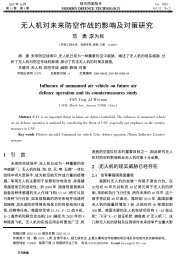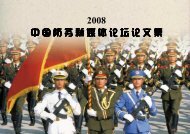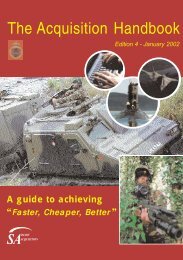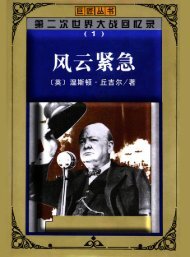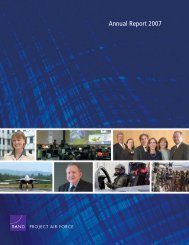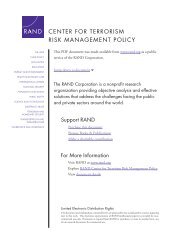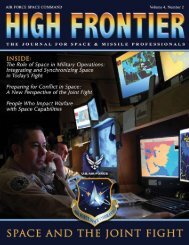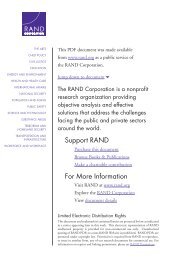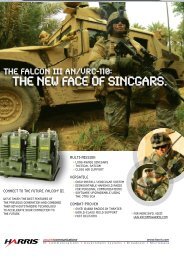How Terrorist Groups End - RAND Corporation
How Terrorist Groups End - RAND Corporation
How Terrorist Groups End - RAND Corporation
You also want an ePaper? Increase the reach of your titles
YUMPU automatically turns print PDFs into web optimized ePapers that Google loves.
60 <strong>How</strong> <strong>Terrorist</strong> <strong>Groups</strong> <strong>End</strong>: Lessons for Countering al Qa’ida<br />
In some cases, terrorist groups may possess such significant military<br />
power—such as the Khmer Rouge, FMLN, Taliban, or Armed Islamic<br />
Group—that military forces are necessary to counter them. In sum, a<br />
policing strategy may be appropriate in many situations. But it may be<br />
less apropos in cases with a weak state, little political will to defeat terrorist<br />
organizations, or powerful insurgent groups.<br />
Policing can be an effective strategy to penetrate terrorist organizations,<br />
capture or kill their members, and, ultimately, eradicate<br />
the group. Unlike the military, the police usually have a permanent<br />
presence in cities, towns, and villages; a better understanding of local<br />
groups and the threat environment in these areas; and better intelligence.<br />
The mission of the police and other security forces should be<br />
to eliminate the insurgent organization—the command structure, terrorists,<br />
logistics support, and financial and political support—from the<br />
midst of the population. As Bruce Hoffman argued, a critical step in<br />
countering terrorist groups is for law-enforcement officials to<br />
develop strong confidence-building ties with the communities<br />
from which terrorists are most likely to come or hide in, and<br />
mount communications campaigns to eradicate support from<br />
these communities. The most effective and useful intelligence<br />
comes from places where terrorists conceal themselves and seek<br />
to establish and hide their infrastructure. 49<br />
Police and intelligence services are best placed to implement these<br />
activities.<br />
A police approach can include a range of steps. The first is intelligence<br />
collection and analysis. In Small Wars, British Colonel C. E.<br />
Callwell wrote that security forces often work somewhat “in the dark”<br />
against terrorist organizations and that “what is known technically as<br />
‘intelligence’ is defective, and unavoidably so.” 50 Intelligence is the principal<br />
source of information on terrorists. The police and intelligence<br />
agencies have a variety of ways to identify terrorists, including signal<br />
49 Hoffman (2006, p. 169).<br />
50 C. E. Callwell, Small Wars: Their Principles and Practices, 3rd ed., Lincoln, Neb.: University<br />
of Nebraska Press, 1996, p. 43.




